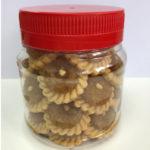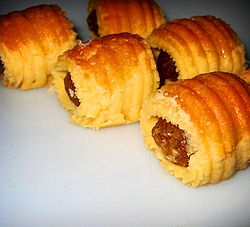
Chinese New Year Traditions
How much do you know about the traditions and customs of the upcoming Spring Festival? Are you ready for all the fanfare and exciting events to come?
Chinese New Year is one of the most important holidays for the various Asian countries throughout, with all of the family members gathering together for:
- Spring Cleaning 【大掃除】;
- Clean the house to welcome a fresh new year!
- New Year’s Shopping 【新年購物】;
- There is a saying amongst the Chinese, “Celebrate the New Year with New Clothes” and thus many people would take the opportunity before the New Year to shop for new clothes in order to ‘start anew in the new year’.
- Hanging up of Spring Couplets 【贴春聯/貼揮春】;
- ‘Couplets’ in Chinese means to be synonymous, thus ‘Spring Couplets’ means to be blessed synonymously with the words written and hung. (For example, commonly used spring couplets often hope for good luck and prosperity, thus hanging them up would portray a jovial atmosphere as a decoration as well as an extension of sharing the equivalence of good luck and prosperity all around.)
- Thanking the Stove God 【謝灶】;
- The legend goes that the Stove God is in charge of cuisines, fortunes, and prosperity, thus every year he would return to Heaven on the twelfth lunar month and report to the Jade Emperor about the good and bad deeds of the mortals. (This is a tradition that carries high importance amongst the people.) The twenty third or fourth day of the twelfth lunar month comes from an age-old saying of ‘Official Three People Four’【官三民四】, referring to ‘only the government officials are to worship the Stove God on the twenty-third and the common people worshipping would be done on the twenty-fourth’. However, there is no longer this restriction in this day and age.
- For more information about the Stove God, here‘s the Wikipedia link!
- The legend goes that the Stove God is in charge of cuisines, fortunes, and prosperity, thus every year he would return to Heaven on the twelfth lunar month and report to the Jade Emperor about the good and bad deeds of the mortals. (This is a tradition that carries high importance amongst the people.) The twenty third or fourth day of the twelfth lunar month comes from an age-old saying of ‘Official Three People Four’【官三民四】, referring to ‘only the government officials are to worship the Stove God on the twenty-third and the common people worshipping would be done on the twenty-fourth’. However, there is no longer this restriction in this day and age.
- Welcoming the God of Wealth/ Welcoming Cai Shen 【接財神】:
- Incense is burned and prayers are given on the fifth day of the first lunar month (Said to be his birthday) at the temple of the God of Wealth. Friends and relatives visiting would exchange New Year greetings, most commonly “May you become rich!” (恭喜发财/Gong Xi Fa Cai).
- Brittanica gives a brief summary about this Chinese Deity, Goodyfeed explains a little further about the custom in the present-day and Wikipedia shares a little more about the variations of Cai Shen which is often referred to in Feng Shui, otherwise known as Chinese Geomancy.
- Incense is burned and prayers are given on the fifth day of the first lunar month (Said to be his birthday) at the temple of the God of Wealth. Friends and relatives visiting would exchange New Year greetings, most commonly “May you become rich!” (恭喜发财/Gong Xi Fa Cai).
- ‘Selling Laziness‘ 【賣懶】:
- A popular custom in China’s Guangdong region, where every child is given a red chicken egg, lights one incense, and would walk down the streets carrying a lantern and singing, “Sell the laziness, sell until the last night of the year, people can be lazy but I won’t be!” In older times, the children would dress up in new clothes, socks, and shoes before the new year. When the bell of the new year chimes, the children would walk out the door to step on ‘lowly people’ (to mean people with vile characters) and hope that the new year would proceed safely and harmoniously.
- Did You Know? Children ‘selling laziness’ actually comes from classic lore. Legend says that in the Queen Mother of the West’s Peach Garden, there was a great big lazy bug. It often curled itself up in the Peach Garden, sucking the juices of the peaches in Spring and eating the fruits in Autumn. On one Autumn’s day, the peaches had a great harvest and it wanted to secretly eat the fruits but was found out by the Queen Mother. In a fit of rage, the lazy bug was banished down to the mortal plane. Once this lazy bug had arrived, it burrowed its’ way into a child’s nose and turned into a slug. On the nights while the child slept, it would crawl onto the blankets and turn into a big lazy bug, thus the child would often laze about on the bed in the morning. This resulted in the custom of having the children head out to ‘sell laziness’ every end of the year, in order to pray for continuous improvement and motivations to work hard the following year.
- A popular custom in China’s Guangdong region, where every child is given a red chicken egg, lights one incense, and would walk down the streets carrying a lantern and singing, “Sell the laziness, sell until the last night of the year, people can be lazy but I won’t be!” In older times, the children would dress up in new clothes, socks, and shoes before the new year. When the bell of the new year chimes, the children would walk out the door to step on ‘lowly people’ (to mean people with vile characters) and hope that the new year would proceed safely and harmoniously.
- Release the Fire Crackers 【燒炮仗/放爆竹】:
- A tradition with more than two thousand years of history that involves setting off firecrackers in order to chase away the ‘Nian’ monster in Chinese folklore.
- For more details about this tradition, check this out!
- IMPORTANT: Do take note that for safety and environmental protection purposes, many places have imposed bans or restrictions on the use of fireworks and firecrackers thus it is important to check up on the laws of the areas before planning to purchase any firecrackers.
- A tradition with more than two thousand years of history that involves setting off firecrackers in order to chase away the ‘Nian’ monster in Chinese folklore.
During New Year’s Eve, people would also gather together for a family reunion dinner (年夜飯) and visit the lunar new year markets (逛年宵) that would be decorated with that extra festive flair. On the first day of the lunar year, they would swarm to the temples to claim the first prayer (上頭炷香), attain blessings (祈福), watch the fireworks show (燒炮仗) and Lion Dance (舞獅), visit their relatives (拜年), give or receive red packets (派红包), and various many more traditions depending on the area and culture.
Besides all that, people often eat rice cake (年糕 ‘Nian Gao’) made from glutinous rice flour and sugar, as the word cake (糕 ‘Gāo’) and the word for high/tall (高 ‘Gāo’) had the same pronunciation, so the consumption of rice cake held the meaning of ‘attaining greater heights with every step’ (步步高升). Glutinous Rice Balls were also a definite favorite choice of dessert after the Family Reunion Dinner, as the tasty round treat carried the meaning of a harmonious family circle and joyous gatherings.
Many treats often carry such different meanings behind their names and origins and one excellent example is the Pineapple tarts. “Nastar” cookies or “Tat Nenas”, a local term for the snack, adopted its’ name from “ananas taart” in Dutch which means pineapple tart. Our post here dives into the magic behind these bite-sized delicious pastries.
The word for the pineapple fruit in Chinese dialects (E.g: Hokkien and Cantonese) is “Ong Lai” or “Wong Lai”, a homonym for “Wealth Arrives”, so the act of gifting pineapple tarts to friends and family is about bringing prosperity and fortune to them for the upcoming new year ahead.
Wishing you a prosperous every day and we hope you give our very own local pineapple tarts a try!
?Contact us with the Contact Form or call/WhatsApp us at 8213 8199 today!?


